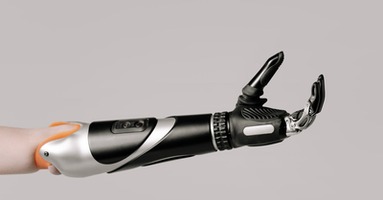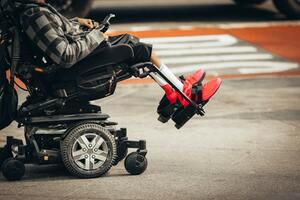
Get a Handicap Parking Placard for a Disabled Veteran in California
Introduction
Handicap Parking Placard for a Disabled Veteran in California - For many disabled veterans, navigating daily life can present unique challenges, especially when it comes to mobility. CA, recognizing the service and sacrifices of its veterans, offers specialized parking privileges through disabled veteran (DV) handicap placards. These placards not only make parking more accessible but also provide a small measure of the respect and convenience that our vets deserve. This comprehensive guide will walk you through the process of obtaining a handicap placard as a disabled vet in California, covering eligibility requirements, the application process, and more.
Understanding Disabled Veteran (DV) Handicap Parking Placards
A Disabled Veteran (DV) accessible placard is a special permit issued by the CA Department of Motor Vehicles (DMV) that allows vets with qualifying disabilities to park in designated handicap spaces. These spaces are typically located closer to building entrances and other key areas, making it easier for those with mobility issues to access public and private facilities.
Who Qualifies for a DV Handicap Parking Placard?
To qualify for a DV handicap permit in CA, a vet must meet specific criteria. These criteria are designed to ensure that the permits are issued to those who genuinely need them due to mobility or other significant disabilities.
Eligibility Criteria
Service-Connected Disability: The vet must have a disability that is connected to their military service. This means that the disability must have been incurred or aggravated during active military service.
Permanent Disability: The disability must be permanent, meaning it is expected to last indefinitely without significant improvement.
Mobility Impairment: The vets disability must substantially impair their ability to walk. Specific conditions that may qualify include:
- Loss of use of one or more limbs.
- Severe arthritis or neurological conditions affecting mobility.
- Chronic lung disease or heart condition that severely restricts mobility.
- Legal blindness.
vets Administration (VA) Certification: The disability must be certified by the VA as a 100% service-connected disability or as a disability rated at 50% or more with a mobility impairment.
Step-by-Step Guide to Obtaining a DV Handicap Parking Placard
Obtaining a DV accessible permit in CA involves several steps, from gathering the necessary documentation to submitting your application to the DMV. Below is a detailed, step-by-step guide to help you through the process.
1. Gather Required Documentation
Before you begin the application process, it’s essential to gather all necessary documentation. This will streamline the process and ensure that you have everything needed when you apply.
Required Documents:
- vets Identification: A copy of your valid CA driver’s license or ID card.
- VA Disability Certification: Documentation from the VA that certifies your service-connected disability and its rating. This can include VA Form 21-4502, which certifies that you have a permanent disability rating from the VA.
- Medical Certification: A certification from a licensed physician, surgeon, physician assistant, nurse practitioner, or certified nurse midwife that verifies your mobility impairment.
2. Complete the Application Form
The next step is to complete the DMV’s application form for a DV accessible placard. The form you need is REG 195, which is specifically designed for disabled vets permits.
How to Complete REG 195 - NOTE: once you register with HandicapMD, we will send the form to be completed via DocHub.:
- Section A: Applicant Information: Enter your personal information, including your name, address, and contact details.
- Section B: vets Certification: Include your VA certification details, specifying the nature and extent of your disability.
- Section C: Physician’s Certification: This section must be completed by your healthcare provider, confirming your disability and its impact on your mobility.
3. Submit Your Application
Once your application form (REG 195) is complete, along with all necessary documentation, it’s time to submit your application to the DMV. You can do this in several ways:
Submission Methods:
- In Person: Visit your local CA DMV office to submit your application in person. This method allows you to receive assistance if you have any questions or need clarification.
- By Mail: Send your completed application and supporting documents to: DMV permit Desk, P.O. Box 932345, Sacramento, CA 94232-3450
4. Pay the Applicable Fees
The fee structure for DV accessible permits can vary depending on your specific circumstances. In many cases, disabled vet are exempt from paying fees for their permits, especially if the disability is certified as 100% service-connected by the VA.
Fee Exemptions:
- 100% Service-Connected Disability: a 100% service-connected disability are typically exempt from all fees related to obtaining a DV accessible placard.
- Partial Service-Connected Disability: a less than 100% disability rating may be required to pay a nominal fee unless they qualify for other exemptions.
5. Receive Your Placard
After submitting your application and any necessary fees, the DMV will process your request. If approved, you will receive your DV accessible permit by mail. This permit will be valid for a specified period, after which you will need to renew it.
permit Types:
- Permanent Placards: These are issued to vets with permanent disabilities and are typically valid for two years. They must be renewed every two years.
- Temporary Placards: In rare cases, vets with temporary disabilities may be issued a temporary placard, which is valid for up to six months and can be renewed if necessary.
Renewal and Replacement of DV Handicap Placards
Once you have obtained your DV accessible placard, it’s important to keep track of its expiration date and understand the renewal process. Additionally, you should know what steps to take if your placard is lost or stolen.
Renewing Your DV Handicap Placard
Renewing a DV accessible placard in CA is a straightforward process, but it’s essential to start the renewal process before your current placard expires.
Renewal Process:
- Permanent permits: If you have a permanent placard, the DMV will typically mail you a renewal notice approximately 60 days before your placard expires. You can renew by mail or in person at a DMV office.
- Temporary permits: Temporary permits cannot be renewed by mail. You must submit a new application, including updated medical certification, to renew a temporary placard.
Replacing a Lost or Stolen Placard
If your DV accessible permit is lost, stolen, or damaged, you can request a replacement from the DMV.
Replacement Process:
- Form REG 156: Complete and submit DMV Form REG 156, which is the application for replacement tags, stickers, documents, and/or permits.
- Submission: You can submit this form by mail or in person at a DMV office. Be sure to include any applicable fees unless exempt.
Privileges and Restrictions for DV permit Holders
As a holder of a DV accessible placard, you are entitled to certain privileges in CA. However, there are also specific rules and restrictions you must follow.
Privileges
Where You Can Park:
- Disabled Spaces: You can park in any space designated for disabled persons, usually marked with the international symbol of access (a wheelchair symbol).
- Metered : DV placard holders can park at metered spaces without paying the meter fee, provided the vehicle displays the placard.
- Time-Limited : You can park in time-limited spaces for unlimited time, with some exceptions in certain municipalities.
- On-Street in Residential Areas: Some residential areas may allow DV permit holders to park without a residential permit, depending on local regulations.
Parking Restrictions
Where You Cannot Park:
- No Parking Zones: permit holders are not allowed to park in zones where parking is prohibited at all times (e.g., fire lanes, loading zones).
- Street Sweeping Zones: You must adhere to street sweeping schedules and move your vehicle during designated times.
- Private Property: The permit does not grant permission to park on private property without the owner’s consent.
Legal Considerations and Penalties for Misuse
It’s important to understand the legal responsibilities that come with using a DV accessible parking placard. Misuse of the permit can result in significant penalties.
Legal Use of the Placard
The DV accessible parking permit is intended for the exclusive use of the disabled vets to whom it is issued. The permit must be displayed when the vehicle is parked in a designated space, but it should be removed when the vehicle is in motion.
Authorized Users:
- The vet : The vet to whom the permit is issued must be present when the permit is used.
- Transporting the vet : Another individual can use the placard if they are transporting the disabled vet in their vehicle.
Penalties for Misuse
Misuse of a DV accessible permit is considered a serious offense in CA and can result in fines, suspension of the placard, or even criminal charges.
Types of Misuse:
- Using the permit Without the vets Present: The permit cannot be used if the vet is not in the vehicle.
- Lending the Placard: Lending the permit to someone who is not authorized to use it is illegal.
- Forging or Altering the Placard: Creating, altering, or using a forged permit is a criminal offense.
Penalties:
- Fines: Misuse can result in fines ranging from $250 to $1,000.
- Suspension: The DMV may suspend the permit if misuse is reported and confirmed.
- Criminal Charges: In severe cases, such as forging or altering a placard, the offender may face criminal charges, which can lead to a criminal record and more severe penalties.
Can disabled vets tags park in handicap California?
Yes, in CA, vehicles with Disabled vet (DV) tags are allowed to park in designated accessible spaces. These tags serve as evidence that the vet has a qualifying disability, allowing them the same parking privileges as those who display a disabled parking placard.
Here are some important points regarding DV tags and parking privileges:
Parking in accessible Spaces: Vehicles with DV tags can legally park in any designated accessible space, just like vehicles displaying a disabled parking placard.
Metered Parking: DV tags also allow the vehicle to park at metered parking spaces without paying the meter fee.
Time-Limited Parking: The vehicle can park in time-limited spaces for an unlimited amount of time (with certain local restrictions).
Private Property: While DV tags allow for parking in public accessible spaces, they do not grant automatic parking rights on private property. Permission from the property owner is required.
No Parking Zones: Even with DV tags , vehicles cannot park in zones where parking is prohibited (e.g., fire lanes, loading zones).
It's important for disabled vets to understand these privileges and adhere to the rules to avoid fines or penalties.
What benefits does a 100% disabled vets get in California?
A 100% disabled vet in CA is eligible for a wide range of benefits that recognize their service and sacrifice. These benefits span several areas, including financial assistance, healthcare, education, housing, and more. Here’s a comprehensive overview of the benefits available to 100% disabled vets in CA:
1. Property Tax Exemption
- Disabled Veterans' Exemption: vets with a 100% service-connected disability are eligible for a significant property tax exemption on their primary residence. The basic exemption amount is up to $161,083, but if the veteran's income is below a certain threshold, the exemption can increase to $241,627. These amounts are subject to annual adjustments.
2. Education Benefits
- College Fee Waiver: The California College Fee Waiver for Veterans' Dependents (CalVet College Fee Waiver) waives mandatory system-wide tuition and fees at any State of CA Community College, CA State University, or University of California campus for dependents of vets with a 100% service-connected disability.
3. Vehicle Registration Benefits
- Disabled vet placard: vets with a 100% service-connected disability can receive Disabled vet (DV) license tags, which allow parking in handicap spaces and exemption from certain vehicle registration fees.
4. Health Care Benefits
- VA Health Care: 100% disabled vets are eligible for comprehensive health care through the U.S. Department of vets Affairs (VA), including hospital care, outpatient services, prescription medications, and specialized treatments.
5. Recreational Benefits
- State Parks and Recreation Pass: 100% disability rating can obtain a free Disabled vet State Park and Recreation Pass, which provides free use of all basic facilities (including day-use areas and campgrounds) at CA State Parks.
6. Financial Benefits
- VA Disability Compensation: vets with a 100% disability rating receive the highest level of monthly disability compensation from the VA. This compensation is tax-free and adjusted annually based on the cost of living.
- Military Retirement Pay Exemption: Disabled vets receiving military retirement pay may qualify for a complete exemption from state taxes on their retirement pay.
7. Housing Benefits
- CalVet Home Loans: The CA Department of vets Affairs offers home loans with favorable terms, including competitive interest rates, to eligible vets . vets with a 100% disability rating may have access to additional benefits, such as fee waivers.
8. Employment and Vocational Benefits
- Veterans’ Preference in Hiring: CA offers veterans' preference points in civil service exams, giving them an advantage in state employment.
- Vocational Rehabilitation: The VA’s Vocational Rehabilitation and Employment (VR&E) program provides services to help disabled vets prepare for, find, and maintain suitable employment. This includes job training, resume development, and assistance with job placement.
9. Life Insurance Benefits
- Service-Disabled vets Insurance (S-DVI): vets with a service-connected disability can apply for S-DVI, which provides up to $10,000 in life insurance coverage. vets who are eligible for S-DVI may also qualify for a waiver of premiums.
10. Burial and Memorial Benefits
- Free Burial at a National Cemetery: vets with a 100% disability rating are entitled to free burial in a VA national cemetery, which includes the grave site, opening and closing of the grave, perpetual care, a government headstone or marker, a burial flag, and a Presidential Memorial Certificate.
- Burial Allowances: The VA provides a burial allowance to help cover burial, funeral, and transportation costs for eligible vets.
11. Additional State-Specific Benefits
- Business License, Tax, and Fee Exemptions: Disabled vets in CA may qualify for exemptions from certain business license fees, taxes, and other related charges, depending on local regulations.
- Free Fishing and Hunting Licenses: 100% disabled vets are eligible for free fishing and hunting licenses in California.
These benefits are designed to support disabled vets in various aspects of their lives, acknowledging their service and providing resources to enhance their quality of life. Veterans should contact the California Department of Veterans Affairs (CalVet) or the U.S. Department of Veterans Affairs (VA) to explore their eligibility for these benefits and to receive assistance in the application process.
Resources and Support for Disabled vets in California
Navigating the process of obtaining a DV accessible placard can sometimes feel overwhelming, but there are resources and organizations available to assist disabled veterans in California.
vets Affairs (VA)
The U.S. Department of Veterans Affairs (VA) is a crucial resource for vets seeking information and support related to their service-connected disabilities. The VA can provide the necessary certification and documentation required to apply for a DV accessible placard.
- Contact Information: Veterans can contact the VA at 1-800-827-1000 or visit the VA's official website for more information and assistance.
California Department of Motor Vehicles (DMV)
The California DMV is the state agency responsible for issuing DV accessible permits. They offer various resources, including online forms, guidelines, and in-person assistance at local DMV offices.
- Contact Information: For specific questions about DV accessible permits, veterans can contact the DMV Placard Desk at 1-800-777-0133 or visit the California DMV website.
Disabled American Veterans (DAV)
Disabled American vets (DAV) is a nonprofit organization that provides a wide range of support services to disabled vets, including assistance with applying for benefits and navigating the DV accessible permit process.
- Contact Information: Veterans can reach out to DAV at 1-877-426-2838 or visit the DAV website for more information.
Legal Assistance and Advocacy Groups
In some cases, disabled vets may need legal assistance to address issues related to their disability status or to challenge decisions made by the VA or DMV. There are several legal aid organizations and advocacy groups that specialize in supporting vets' rights.
- vets Legal Institute: Provides pro bono legal services to veterans in need. More information can be found on their website.
- National Veterans Legal Services Program (NVLSP): Offers legal representation and support for veterans facing challenges with their disability claims. Visit the NVLSP website for more details.
Conclusion
Obtaining a DV accessible permit in California is a valuable benefit for disabled vets , helping them access parking spaces that make daily life more manageable. By following the steps outlined in this guide—gathering the necessary documentation, completing the application, and submitting it to the DMV—vets can secure the parking privileges they deserve.
It’s important to use the DV accessible permit responsibly and in accordance with the law. Misuse can result in significant penalties, and it undermines the integrity of the program designed to support those who have served our country.
For vets who need additional support, there are numerous resources available, including the VA, the California DMV, and organizations like the DAV. These entities are dedicated to assisting veterans in navigating the process and ensuring they receive the benefits they are entitled to.
By securing a DV accessible placard, disabled vets in California can enjoy greater mobility and independence, allowing them to more easily participate in the activities they enjoy and access the services they need.
Additional Resources
For more information on how to apply for a DV accessible permit in California, or to access the necessary forms and resources, please visit the following links:
By taking advantage of these resources, disabled vets can ensure they have the support they need to navigate the application process and maintain their parking privileges.
This article has been designed to provide comprehensive and useful information on how to obtain a DV accessible placard in California. If you have any further questions or require additional assistance, please do not hesitate to contact the appropriate agencies or advocacy groups mentioned in this guide.
.png)






